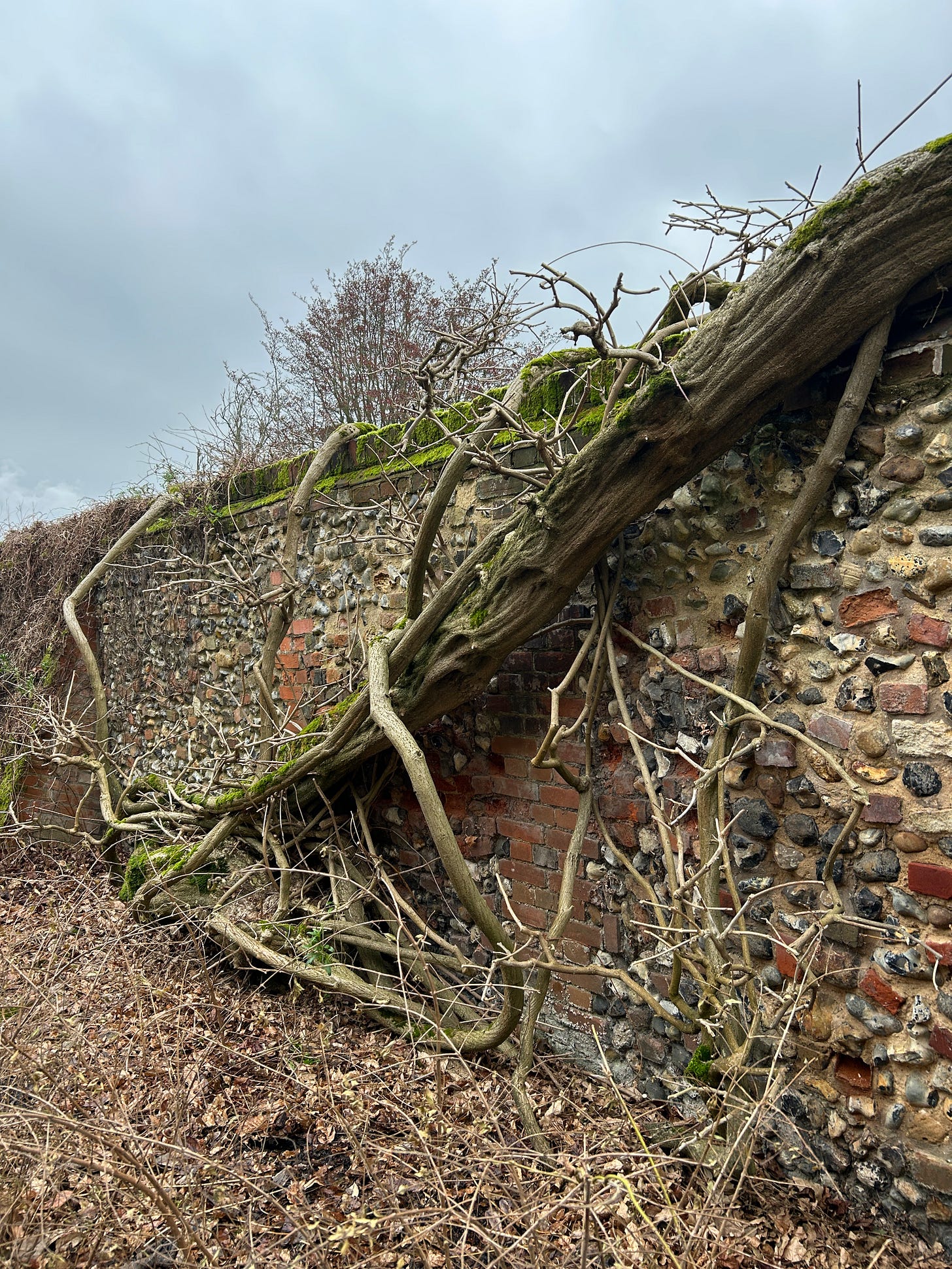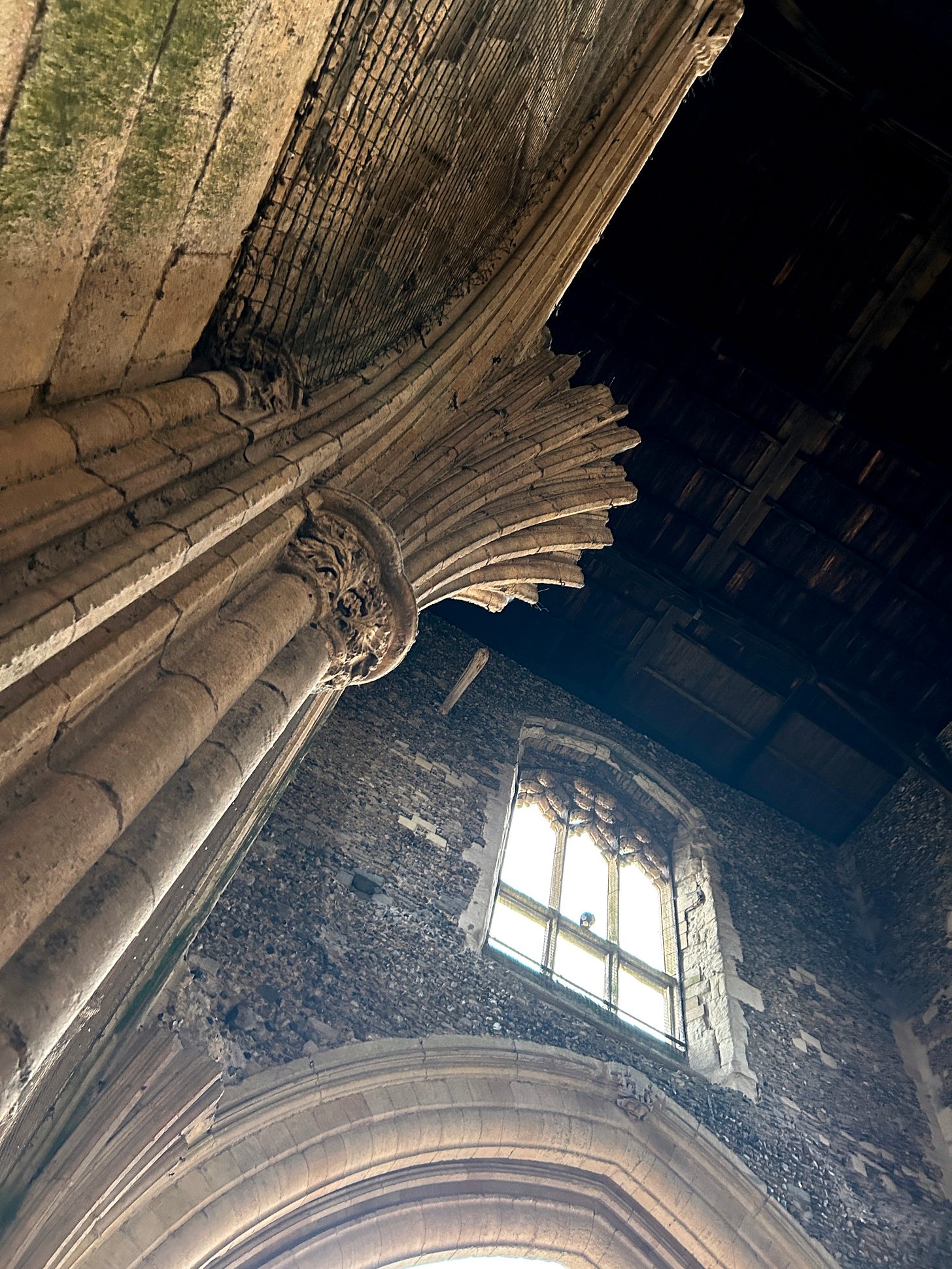There are things that are almost exactly the same, things that are radically different, and other things (most things) that are a curious mixture of the two. The latter tends to create a strange, shifting sense of discombobulation which I would describe as akin to deja vu, if the mere fact of having definitely, absolutely lived here before did not disqualify that term entirely. Perhaps it's more like dreamed places that you know to be a particular location despite not resembling the actual place in the slightest ('so I was at school, only it was the mini Tescos near the double roundabout,' you know - that sort of thing). You know the place, but you don't, at the same time.
When you spend a good proportion of your life in one place - especially if that proportion coincides with one's youth, or particularly trying circumstances, when there are generally far more pressing matters with which to occupy oneself - it is remarkable how much of the substance and character of that place goes quite unexamined, day-to-day. Coming back after an extended absence, then, familiar places positively teem with startling new detail that you simply didn't notice before. Was that stonemason's mark, a relic of the medieval past, really always right there on that building I walked by every day? Were the pigeons in the town gardens always so tame? Was the light in the early morning always so magnificent?
Speaking of trying circumstances: it's quite different experiencing a place when you have renewed emotional capacity, when the turbulence of Big. Life. Events. or youth or any number of the other emotional maelstroms we can expect to experience in a human life have momentarily faded. It's easy for places to take on, in memory, the emotion of a particular time in our personal history, to thus characterise those spaces within our imaginations as steeped in grief or loneliness or longing. Returning to the scene of the crime, as it were, can seem daunting, the memory of The Thing(s) looming large. In reality: time reveals it was not the place that contained the feeling, but our own flesh. Time smoothes any spiking flint-edges of pain the way seawater works at glass. After enough time has elapsed, what remains of The Thing(s) can be held in the palm of one hand. If you hold it up to the light, you might think it beautiful.
Children you have known will have grown into long-limbed teenagers and, quite possibly, into actual adults. You might expect to run into them aged eight or eleven or thirteen, as if they'd been living in some sort of suspended animation since your departure, but in news that will be shocking to absolutely no-one but you, the person who has not lived in the geographical vicinity of said children for some time, they will have continued along some terrific upwards trajectory, and will in all likelihood be over six feet tall/studying something earnest and clever at university/embarking upon world travel/getting married. You will feel mildly embarrassed by the curiously arrogant way you have imagined them as perennially nine, or whatever. You will also feel very, very old.
Part of you reactivates somehow. I don't know how better to explain it than this.
Going outside is good for you. I know! Groundbreaking! But - living for long periods in less walkable places can make you forget quite how much better you really do feel when you go outside every day. Thus: you become reacquainted with the native wildlife: a pair of water voles near the river, that scrappy gangs of rooks. Tiny Muntjac deer poking about in the larger hedgerows. A flap of piebald pigeons that haunt the benches in the park, waiting for sandwich-bearing office workers on their lunch breaks. Blackbirds and thrushes and a Red Kite hovering over the A-road. You mount a daytime hedgehog rescue (it is safely delivered of the vet by way of cardboard box balanced on knees in the back of a taxi). Seeing the creatures going about their lives as you go about yours makes you inordinately happy in a quiet, calm sort of way. You begin to look out for them.
It's good to see people every day, even if these are people you do not know and meet only in passing: fellow coffee shop patrons, dog walkers, parents on the school run, squawking gaggles of teenagers clutching paper bags from Gregg's translucent with grease. It is good to be connected, however indirectly, to other humans. It's good to be reminded that most people are good, and doing the best they can, or else that sometimes it is hard to do the best you can, on account of being human, and that, therefore, sometimes we don’t do the best we can, and either way: what we should do is extend grace as much and as often as we can. My politics these days can perhaps best be described as shouting 'we live in a society!' with increasing levels of desperation, but at the risk of being glibly reductive, it's true. We do owe each other. We do need each other. If we're not inherently connected to other people, if we don't care about other people, really, what is the point of any of this?
Walk the same route enough times and you will become familiar with all the cats living along said route, and will, quite possibly, give them names and/or elaborate backstories (Miss Kitty of the ground-floor flat near my son’s nursery, I’m looking at you, you twitchy, moustachioed angel).
You can make a home most anywhere, I think. Humans have a great capacity to adapt. But - whatever our souls are made of, it seems some places are made of the same - and to make a home there is lucky indeed.
Note: photos author’s own, taken in and around Bury St Edmunds, Suffolk







👍🏼
Lots of these observations resonate with me friend. Thank you for sharing x